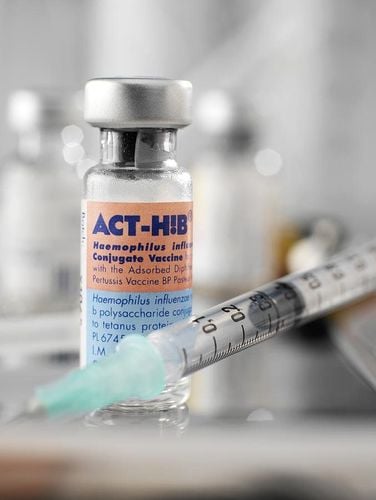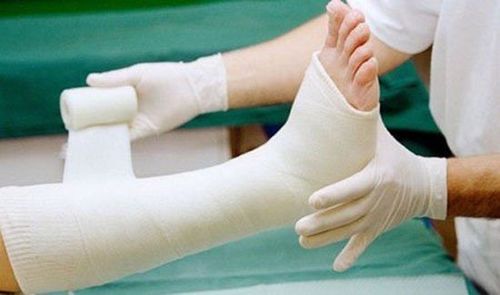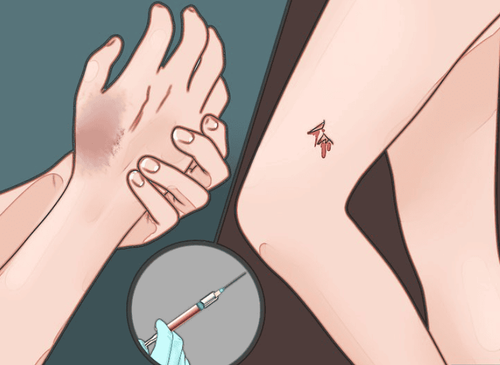This is an automatically translated article.
The article is professionally consulted by Master, Doctor Doan Ngoc Quynh - Pediatrician - Pediatric Center - Vinmec Times City International Hospital. Doctor has 7 years of experience working in the field of Pediatrics.Tetanus is a dangerous infection that can be fatal if not treated promptly. This disease usually occurs in people who have not been vaccinated against tetanus or who have not had a booster shot after 10 years.
1. What is tetanus?
Tetanus is one of the most serious infections caused by Clostridium tetani. The bacteria are commonly found in soil, manure, dust, and other environmental agents. When a wound or a scratched skin comes into direct contact with this bacillus, they will penetrate inside and develop into an infection that causes tetanus toxoid.If Clostridium tetani spores are deposited in the wound, they secrete a protein toxin called tetanospasmin, which can interfere with the nerves that control muscle movement, increase muscle tone and cause contractions, which can even lead to death if not treated promptly.
Most commonly, toxins act at certain sites in the central nervous system, including the brain, spinal cord, as well as the sympathetic nervous system. The incubation period for tetanus is usually 4-21 days. Most of those infected were either unvaccinated against tetanus or those who did not update their 10-year booster shots.

2. How does tetanus toxin affect the nervous system?
Symptoms of tetanus usually appear about 7-10 days after the initial infection. However, in certain cases, the onset of the disease can range from 4 days to about 3 weeks, even taking several months. In general, the farther the lesion is from the central nervous system, the longer the incubation period. Patients with a shorter incubation period tend to have more severe symptoms.The most common muscle-related symptoms, including muscle spasms and stiffness, begin with the masticatory muscles. The spasm then spreads to the neck and throat, making it difficult for the person to swallow. In addition, the patient may also experience spasms in the facial muscles.
Symptoms like shortness of breath stem from stiff neck and chest muscles. In some people, the abdominal and limb muscles can also be affected by tetanus.
In severe cases, tetanus toxin can cause complications, which is common in young children infected with tetanus. Most people who have tetanus will have the following signs and symptoms:
Diarrhea With blood in the stool Headache Fever Sore throat Sweating Heart arrhythmia.
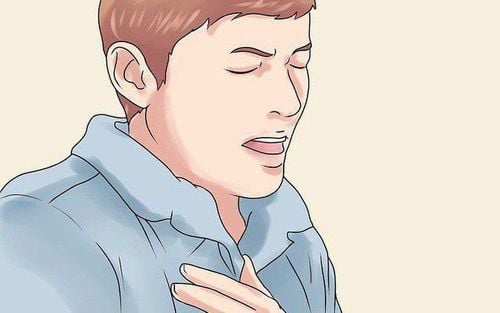
3. Causes of tetanus
The cause of tetanus is the bacterium Clostridium tetani. The spores of this bacterium can survive for a long time outside the body. They often appear in animal feces and contaminated soil, even in any area.When Clostridium tetani enters the body, they multiply rapidly and release tetanospasmin, a neurotoxin. When this toxin enters the bloodstream, it spreads quickly throughout the body and causes tetanus symptoms. Tetanospasmin can interfere with the signals that travel from the brain to the nerves in the spinal cord and then to the muscles, causing muscle spasms and stiffness.
Tetanus bacilli mainly enter the body through a tear or cut in the skin. Therefore, cleaning the wound is extremely important to help prevent infection from developing. Some of the causes of tetanus are listed below, including:
Wounds that have been contaminated with feces or saliva Burns Wounds with dead tissue Wounds that are punctured or open Other rare causes of tetanus boards, including:
Surgery Shallow wounds Insect bites Intravenous drug use Intramuscular injections Open fractures Tooth infections.

4. People at high risk of tetanus
Most tetanus affects mainly people who have never been vaccinated against tetanus, or who have not had a booster shot after 10 years. The highest risk of tetanus occurs in people 65 years of age and older. In addition, diabetes, intravenous drug use, or a history of immunosuppressive drugs may be risk factors for the disease.5. Complications of tetanus
If tetanus is not treated early, it can lead to dangerous complications:Fractures Hypertension Pulmonary embolism Aspiration pneumonia Laryngeal spasms Hospital infections Severe kidney failure Death.
6. Treatment methods for tetanus
Any open wound or cut should be thoroughly cleaned to prevent infection. When there is a tetanus wound, the patient should be treated by a medical professional immediately.People with high risk factors for tetanus should get tetanus immune globulin (TIG) as soon as possible, even if they have been vaccinated. TIG contains antibodies that kill the bacteria Clostridium tetani, which are injected intravenously and provide immediate short-term protection against tetanus. Tetanus immune globulin is short-acting and is not a substitute for other long-acting immunizations. Experts say TIG is safe for pregnant and lactating mothers.
Besides, doctors may prescribe Metronidazole or Penicillin to treat tetanus. These are antibiotics that prevent bacteria from multiplying and creating neurotoxins that cause muscle spasms or stiffness. For patients who are allergic to these two antibiotics, tetracyclines can be used instead.
In the treatment of muscle spasms and stiffness, the patient may be prescribed:
Anticonvulsant drugs, eg Diazepam (Valium), which work to relax the muscles, preventing spasms , reduces anxiety and acts as a sedative. Muscle relaxants, such as Baclofen, help inhibit nerve signals from the brain to the spinal cord, thereby reducing muscle tension. Medications such as pancuronium or vecuronium are helpful in controlling muscle spasms. Surgical approach: When the wound is at serious risk of tetanus, the doctor may ask the patient to perform surgery to remove as much of the damaged and infected muscle as possible.
Nutrition: Patients with tetanus need a large amount of calories daily to help increase muscle activity.
Ventilator: The patient may need help with a ventilator if the vocal cords or breathing muscles are affected.
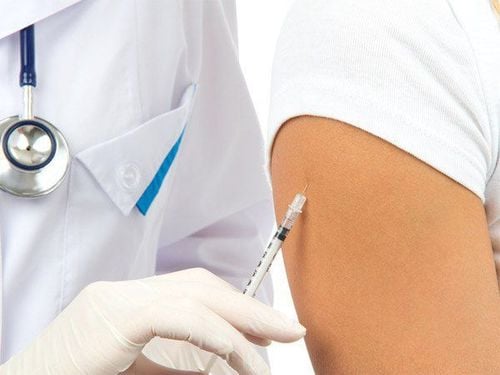
7. Tetanus prevention
Tetanus can cause a very high survival rate, up to 90%, especially umbilical tetanus in neonates. Therefore, it is extremely important to vaccinate children against tetanus against tetanus.Currently, the recommended vaccines for use in young children are DTaP (diphtheria, tetanus, pertussis). This vaccine consists of 5 shots, usually given in the arm or thigh when the child is:
2 months 3 months 4 months 18 - 24 months 4 - 6 years A booster shot is usually given when children between the ages of 11-18, then further injections will be given every 10 years. For individuals traveling or working in an area with high rates of tetanus, they should talk to their doctor about getting vaccinated.
Currently, at Vinmec International Hospital, there is a tetanus vaccine along with combination vaccines produced in France and Belgium. Combining injections reduces the number of injections and the possible risks of multiple injections. Notable benefits when implementing combination vaccines, include: Increase the vaccination rate on schedule, increase the vaccination rate for dangerous diseases, reduce the cost of transportation and storage of vaccines. please,...
Vinmec International General Hospital with a system of modern facilities, medical equipment and a team of experts, doctors with many years of experience in medical examination and treatment, patients completely You can rest assured that you will be examined and treated at the Hospital.
Please dial HOTLINE for more information or register for an appointment HERE. Download MyVinmec app to make appointments faster and to manage your bookings easily.
References: medicalnewstoday.com, cdc.gov







